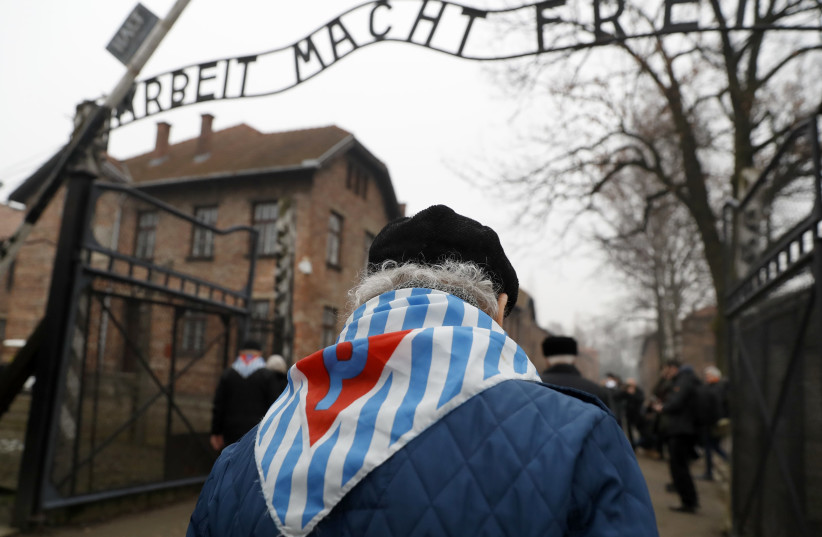WASHINGTON – Jewish communities throughout the US will mark Holocaust Remembrance Day this Thursday. The Jewish Federations of North America will join with the Network of Jewish Human Service Agencies, the European Council of Jewish Communities, CJE SeniorLife, the Conference on Jewish Material Claims Against Germany, and Uniper in a global virtual gathering.
The virtual program will offer special recognition of the legacy of survivors from the former Soviet Union, JFNA said in a statement. Author Wendy Lower, professor of history at Claremont McKenna College and authority on the Holocaust in Ukraine, will offer the keynote address.
In the Washington DC area, the local JCRC will host a virtual community-wide commemoration online at 1 PM on Sunday, May 1. Holocaust survivor Josie Traum will be the keynote speaker.
The organization will host 15 separate events over the course of the weeks surrounding Yom HaShoah, Holocaust Day, which will reach over 4000 students, teachers and other adults combined.
The group will speak at over 20 congregations and religious schools, including one public high school “that has recently been grappling with antisemitism,” according to the organization.

A holocaust survivor and a Jewish school board member are expected to address the school’s 2,500 students and light memorial candles on Yom HaShoah itself. In addition, the group will participate in an event with the US armed forces at the Anacostia Bolling Joint Base.
The JCRC expanded significantly the ‘Dor L’Dor’ program, which brings survivors, second generations and third generations to speak with students and adults.
The idea behind this program, called ‘Maggid 2G’ is to train children of Holocaust survivors how to tell their parents’ story.
“We trained 15 people [so far], and I think it was a very powerful experience for people to participate,” said JCRC Director of Education, Program and Services, Sara Winkelman.
The first speaking engagements of the group are already underway at public high schools in the DC-Virginia-Maryland area, she said.
“We were looking at what other communities did.... I think we’re clearly not the first community looking to come up with a plan because there are not that many survivors left. So we looked into what a lot of our communities were doing. We met with a number of people around the country with that kind of approach.”
She said that the JCRC, together with a small group of 2G volunteers has worked closely with Peter Nelson, an experienced Holocaust educator as well as a child and grandchild of Holocaust survivors, to develop a unique program for the Greater Washington community.
Nelson previously served for 24 years as the Executive Director of the New York Office of Facing History and Ourselves, an educational non-profit. He also served as Director of Holocaust Education for the ADL.
“His approach is really about a personal narrative – one story. You bring to life the story of the six million people by telling one person’s story. So even though some of the participants are children of two survivors, they tell one parent’s story,” said Winkelman.
The organization put together a five-week training program. “We talk about how to tell a story; it’s a lot about how to gather and organize the information. Basically, the whole training works towards a 20-minute presentation of their parent’s stories.”
“Survivor testimony is the glue by which Holocaust education is transformed into a caring and behavioral change in students,” the JCRC stated. “Children (2Gs) and grandchildren (3Gs) of the survivor population are our critical partners to share memories with the next generation.”
One of the training participants, Tobi Bassin, will be sharing her father’s Shoah experience at a Zikaron BaSalon event for a small group of our interfaith colleagues next week.
